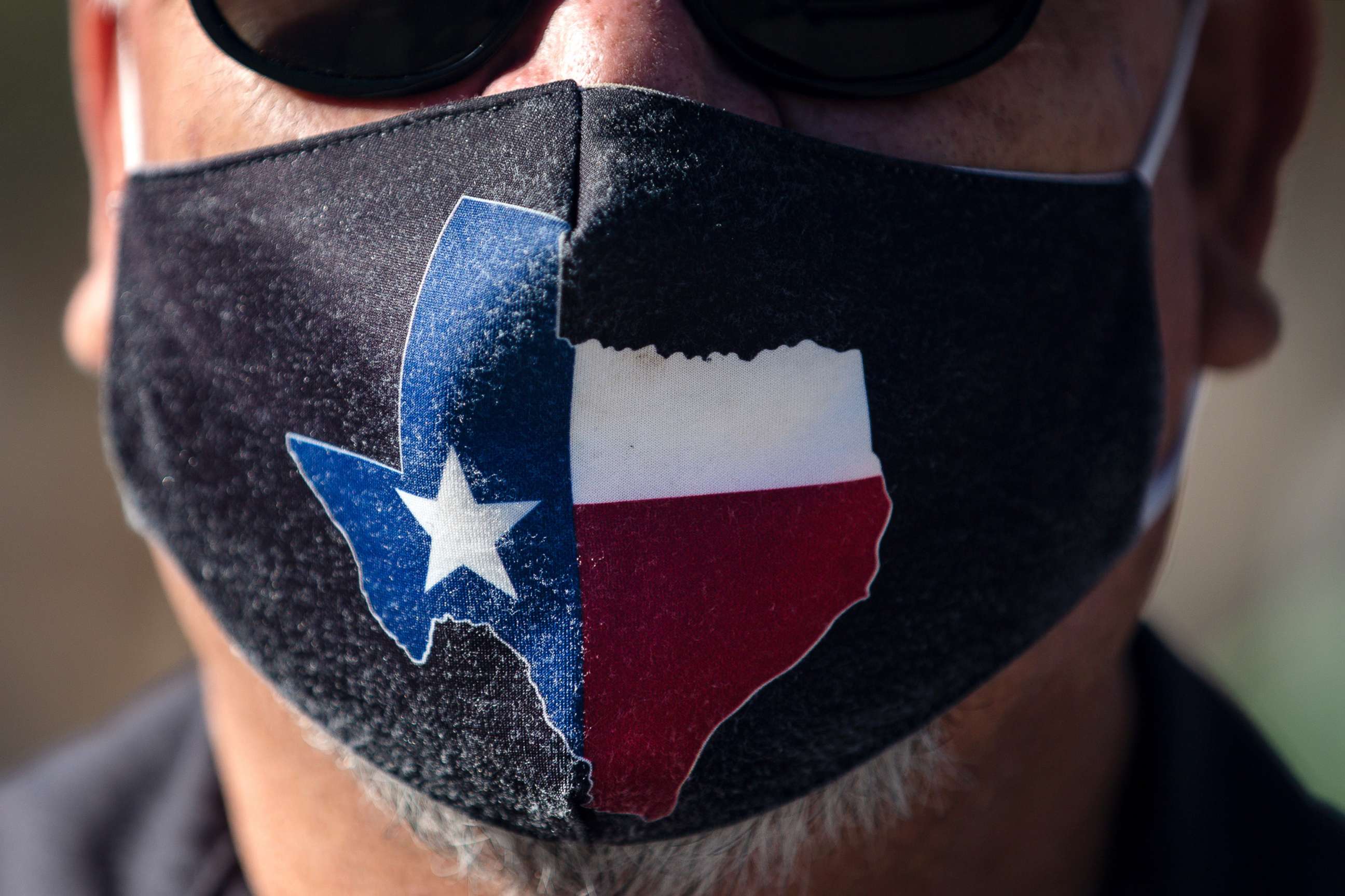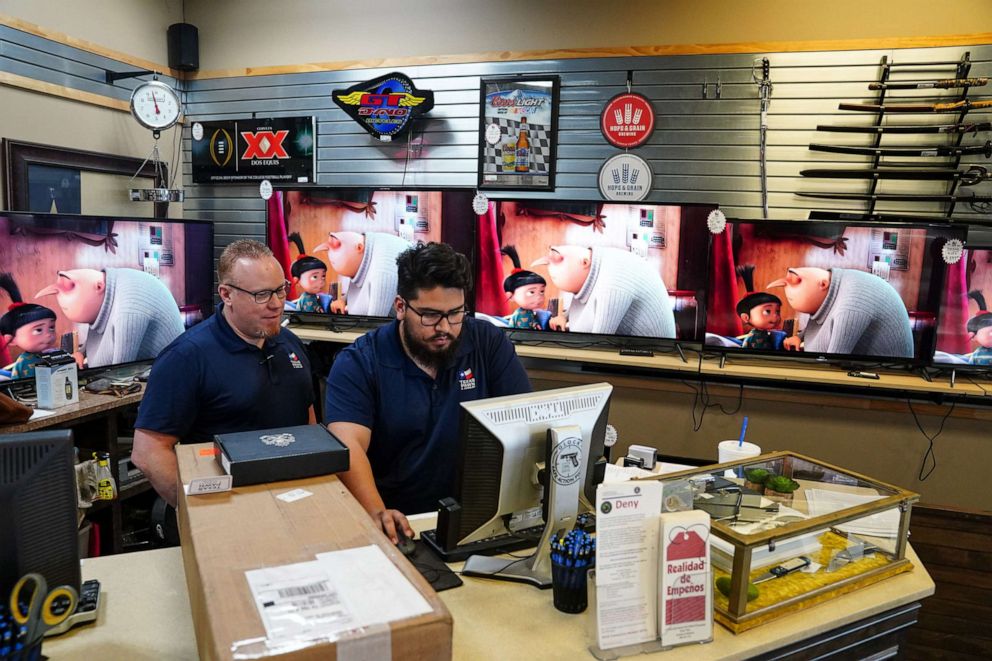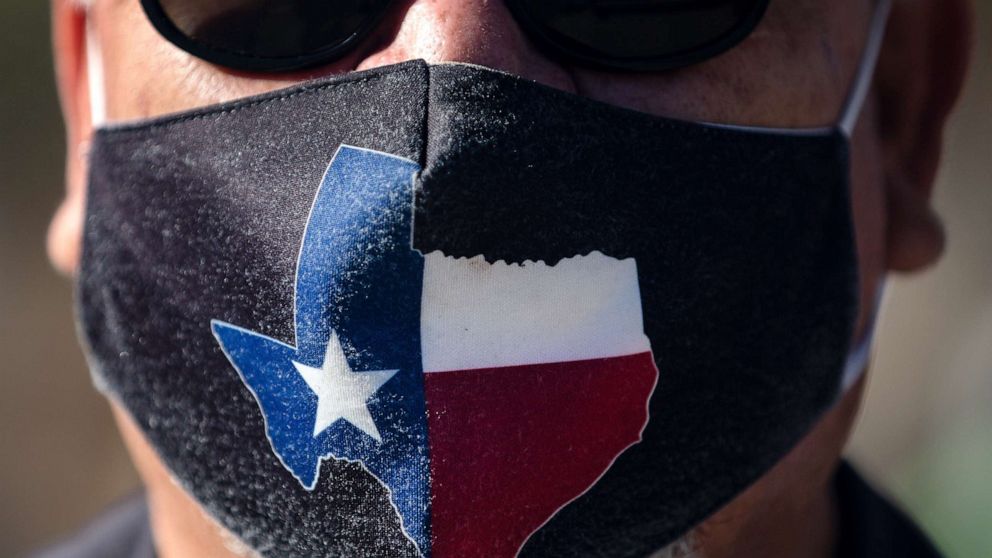Why are states dropping mask mandates and other COVID-19 restrictions?
Several states have dropped statewide mask mandates and loosened coronavirus restrictions over the past week.
Texas and Mississippi announced Tuesday that businesses could operate at full capacity, joining fellow Republican-led states Iowa, Montana and North Dakota in dropping statewide requirements for face coverings.
Local lawmakers have cited declining COVID-19 cases and hospitalizations, and many have argued that their decisions are aimed at restoring power and freedom to their constituents.
But Dr. Anthony Fauci, the nation's leading expert on infectious diseases, called reopening so soon "ill-advised" Thursday on CNN.
He said restrictions shouldn't be lifted in the U.S. until new coronavirus cases fall below 10,000 a day "and maybe even considerably less than that" across the country.

The United States, as of Friday, posted a seven-day moving average of 62,555 new COVID-19 cases reported daily, according to data from the Centers for Disease Control and Prevention. The last time the U.S. saw fewer than 10,000 cases was March 22, 2020, according to Johns Hopkins University.
It's too soon to tell if these lifted restrictions will lead to an uptick in cases, though experts are concerned. Other state leaders are maintaining them. West Virginia Gov. Jim Justice said mask mandates shouldn't be lifted because doing so would be seen by some as "macho."
"I don't know really what the big rush to get rid of the masks is, because these masks have saved a lot -- a lot -- of lives," Justice said on CNN Thursday.
Justice said there's been no discussion of lifting the mask mandate in his state.
"In West Virginia, we wanted to be cautious, safe, respectful of everybody's rights," he added. "I'm not going to dance like a politician, because I'm not that."
Texas Gov. Greg Abbott's announced his state's mandate ends March 10. He said Texans "no longer need government running our lives."
Abbott told ABC Houston station KTRK on Thursday that the decision was a "product of the data that we have seen."

Thursday marked the lowest positivity rate and number of hospitalizations since October, and more than half of Texas 65 or older have received at least one vaccine shot, Abbott said.
Abbott added that he'd still wear a mask and encouraged his constituents to do so. Texans, he added, "know the right thing to do."
Mississippi Gov. Tate Reeves also cited plummeting hospitalizations and case numbers, and the vaccine rollout, in his decision to end a statewide mask mandate.
President Joe Biden call decisions to end the mandates "Neanderthal thinking."
"We are just simply doing the things to give our people the power back to do what they think is best for themselves and their families," Reeves said in an interview Thursday on Fox News.
Some governors who are relaxing statewide restrictions also are allowing local authorities and constituents to decide for themselves.
Iowa Gov. Kim Reynolds lifted the mask mandate in February, saying, "We know what we need to do, and it doesn't require a government mandate to do it."
In Montana and North Dakota, state mask mandates were allowed to expire, but local authorities can enact their own safety protocols.
Alabama Gov. Kay Ivey announced Thursday that her state's mask mandate will end April 9, saying that face coverings will be "a matter of personal responsibility."
This past week, Pennsylvania, Massachusetts, Virginia, North Carolina, Arkansas, Kentucky, South Carolina, Michigan, Louisiana, and California and Connecticut all loosened coronavirus restrictions based on declining infection numbers.
Those restrictions were in regard to business capacity, curfews, social gatherings and entertainment venues. Those states did not alter their mask policies.
In Utah, the statewide mask mandate may lift on April 10, under a bill that passed in the Utah State Legislature late Friday. Gov. Spencer Cox has signaled that he’ll sign off on the bill. Under the bill, the mask requirement would remain in effect for gatherings of 50 or more people.

Fauci said that for things to reopen he'd like to see "a substantial proportion of the population vaccinated," and restrictions should be eased gradually, not all at once.
"You don't want to go from very stringent public health restrictions to just turning it off, and say, 'That's it,'" Fauci said.
As of Friday, according to CDC data, fewer than 9% of all Americans were fully vaccinated.




